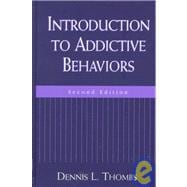This popular text reviews and critiques major contemporary perspectives on alcoholism and drug dependence, including the disease models, psychoanalytic formulations, and theories based on conditioning, social learning, family systems, and sociology. Throughout, applications to the helping process are emphasized and learning is facilitated by case examples and review questions. With all chapters extensively revised to reflect the expanding knowledge base in addictive behavior, the second edition incorporates recent advances in such areas as behavioral genetics, neuroscience, dual diagnosis, contingency management, cognitive expectancy, children of alcoholics, drug subcultures, and motivation enhancement.








